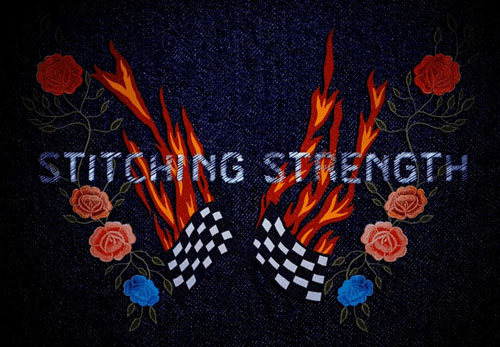Now that the unofficial beginning of fall is here, many of us are being inundated with ads about the season’s fashion offerings. But finding accessible clothing that’s also stylish and comfortable is not always easy.
While it’s true that retailers like Target, J.C. Penney, Tommy Hilfiger and some others have introduced accessible lines in recent years, the fact remains: people with disabilities face limited options when it comes to fashion.
Dr. Richard Bedlack, founder of Duke University’s ALS Clinic, is trying to change that. In early 2025, the doctor, who’s known for his fashion sense, partnered with design students at North Carolina State University to create a program called “Stitching Strength.” Working with Sam Pearce, Assistant Professor of the Practice at NC State’s Wilson College of Textiles, Bedlack connected students with ALS patients to teach them about creating clothing that is both stylish and adaptive.
In an article in Axios Raleigh, Bedlack explained that “a lot of people don’t understand the power of fashion. People think it’s for vanity or to get more followers, but for some of us, it’s a really important component of who we are.”
Bedlack also told Axios that fashion can offer hope for people with diseases with poor prognoses such as ALS. “Hope is so much more than an emotion,” Bedlack said. “It’s so much more than a coping strategy. I actually think hope is a treatment, and I think a lot of doctors don’t get that. It’s not taught to us in medical school how to be a good hope-giver.”
To make his new venture successful, Bedlack enlisted the assistance of some of his patients who helped to educate the young designers about the clothing needs of people with disabilities. They explained how when muscle control is a problem, using buttons, zippers and hooks can be difficult. They advised designers to use Velcro™ or magnet closures instead and to consider designing pants without bottom seams, dresses with open backs and using materials with a lot of stretch.
One patient who helped with the training effort was social media personality Brooke Eby, who has ALS and has partnered with adaptive clothing vendor Silverts. In an email to Axios, Eby said, “I think the adaptive fashion space historically has been catered to an older generation but now there are so many young people living with disabilities that want to look just as cute as their peers.”
After a successful semester, the class is slated to be offered again, and Dr. Bedlack plans to continue his involvement.
Professor Pearce, who teaches the class, hopes that all fashion courses will embrace universal design theory. “It’s not something that has to stick out,” she told Axios. “It can be something that blends in with the normal fashion of today, and even if you weren’t disabled you could still wear it and enjoy it.”
A documentary about the program came out in 2025. Check out the trailer and learn about hosting screenings at the Stitching Strength website.


